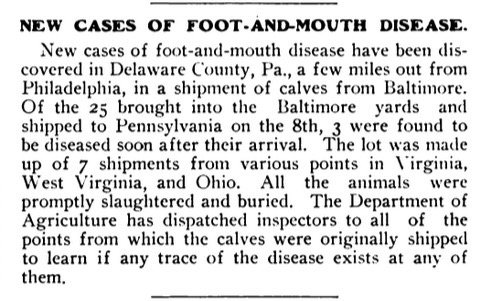Untitled Document



🚨🇺🇸 COLORADO RABBITS WITH BIZARRE ‘HORNS’ CAUSED BY RARE VIRUS
Locals are spotting these unsettling creatures in their backyards, a result of the Shope papilloma virus.
The virus, spread by mosquitoes and ticks, causes wart-like tumors that look like something out of a horror... See more
